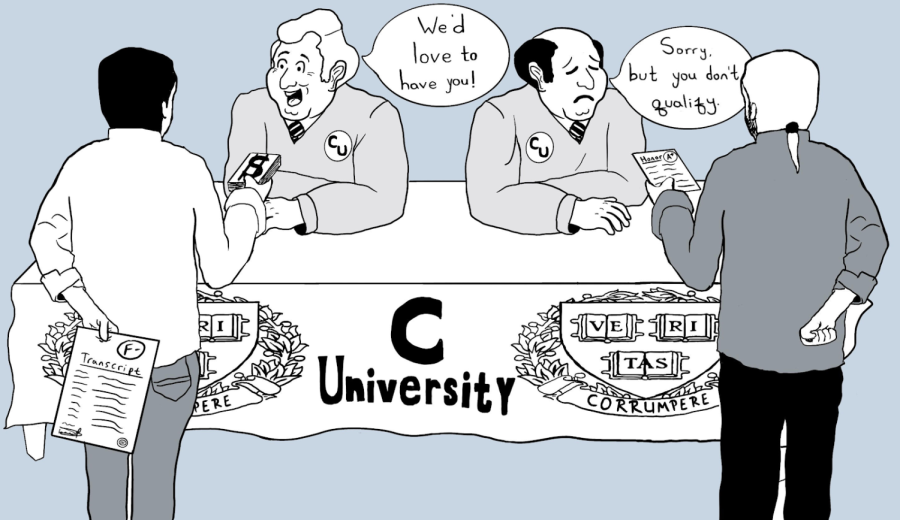Is College a Scam?
May 31, 2023
For many people, college is the next step after graduating from high school. It can serve as a gateway into the adult world, and higher education can grant many opportunities, sometimes even seen as the “golden ticket” to middle-class living. However, although it may help you get a well-paying job, so many students are left with crippling debt straight out of college. These students are being catapulted into the adult world afflicted with financial issues, when they should be focused on their next career move and housing. It’s led many to wonder… is college a scam? Is it worth the money? Are these colleges really on our side?
College tuition has skyrocketed in the past few decades. Since the 1980s, the cost of private schools has risen by 129%, while the cost for public schools has risen by 213%! Not to mention, college has not been providing the same advantages to graduates as it did for older generations. With the value of college declining, why has the tuition exponentially multiplied?
For starters, public funding has been greatly cut over the past few decades, so colleges, in turn, have been raising their fees to account for this loss. The average tuition is about $50,000 per year, which is 25 grand per semester after everything is said and done. And keep in mind, this is just for the average college, not even higher-end education. Once they’ve completed their degree, the average student debt is $29,800. Good luck trying to pay that off with a minimum-wage summer job.
Going back to the fundamentals of economics, the concept of supply and demand comes into play. Demand for college has gone up significantly in the past few decades, for it is no longer limited to upper-class white males. However, this ultimately makes the degree worth less, although it seems to help in the long run. University of the People notes that, “although highly ironic, the more we take part and accept these increased college tuitions, we also contribute to making our degree less beneficial. In fact, figures have actually found that in most majors, 6% of college graduates are unemployed” (Here’s Why College Is So Expensive: The Answer Is Obvious). In addition, to meet the standards of a higher education, highly educated people are necessary, which requires more money to pay for their salaries.
Possibly the most dramatic contribution to the rising cost of colleges is administrative bloat. With the rising prices of tuition, one would think that colleges would be constantly improving using the money you pay. However, most schools are plagued with administrative bloat, which is the mismanagement of incoming money and, therefore, failing to benefit students. Administrative bloat distracts from the ultimate mission of the college. They are hiring administrators at a rapid pace, people who are essentially just placeholders, barely contributing to the development of young adults. Furthermore, the push for diversity in universities is obviously a progressive step in educational equity, but it is also acting as an excuse to hire more ineffective administrators. According to the The Heritage Foundation, “Universities have more people pushing diversity, equity, and inclusion than they have professors teaching history. Diversity, equity, and inclusion personnel are more than four times larger than the staff that provides legally mandated accommodations to students with disabilities” (Administrative Bloat at Universities Raises Costs Without Helping Students). These increases in student services drive up college tuition without improving student outcomes whatsoever.
Students entrust these schools with their life savings, only to be played by the system. Colleges grant student aid but then increase tuition to pay for this student aid, creating a paradoxical cycle that only drains the money from our pockets. What’s even more infuriating is that for-profit colleges are not even required to invest all of their revenue into school operations, using our money on who knows what.
And so the question remains: is this all worth it? Students cannot trust that their money is being used in a manner that benefits them and their opportunities beyond college.


